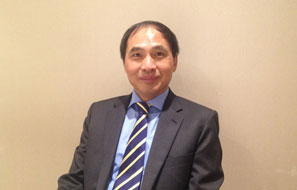Hong Kong elderly go north for retirement
By Qiu Quanlin in Guangzhou and Dongguan, Guangdong (China Daily) Updated: 2012-12-28 01:22The Shouxing Building is the city's largest private rest home, and home to about 50 pensioners from Hong Kong, Liang said.
"Most Hong Kong people living here have children. Some are also natives of Guangdong who chose to return from Hong Kong after retirement," he said.
Tse Shun-fa, 75, a Hong Kong pensioner who moved into a care home in Zhangmutou, Dongguan, five years ago, said the shortage of care homes in Hong Kong makes it difficult to find a space there.
"Comparatively, retirement homes in Hong Kong are small, crowded and very expensive," Tse said. "I would have to pay at least HK$4,000 a month if I stayed in Hong Kong." At the Dongguan-based retirement home, Tse spent about 40,000 yuan ($6,300) on a 25-square-meter room, where he can live until he dies.
Tse, who has four children in Hong Kong, pays another 750 yuan a month for cleaning and nursing services.
"I like living here, although the cost of living is higher than it was 10 years ago. I want a quiet life and to help ease the pressure on my children," he said
Liang said the number of elderly people from Hong Kong moving to the Pearl River Delta has dropped in recent years due to the rising cost of living there.
"Five years ago, we had more than 100 elderly people from Hong Kong living here," he said. "Some have felt pressure from the rising cost of living in the Pearl Delta region."
The cost of nursing services at the Guangzhou retirement home has risen by 50 yuan compared to five years ago. Each resident pays 600 yuan for a bed, 600 yuan for meals and 100 yuan for other services each month, Liang said. Residents also need to pay for their own health care and daily necessities.
"Unlike their local counterparts, elderly people from Hong Kong feel a lot of pressure from mounting health care fees because they don't enjoy local medical insurance," Liang said.
"If they don't go back to Hong Kong for treatment, they are responsible for all their medical expenses."
Leung Sui-tseng, a Hong Kong man who set up a retirement home with a local partner in Guangzhou 11 years ago, said a series of policies announced by the Hong Kong and Guangdong governments have encouraged private investors to develop retirement homes in Guangdong.
One of these policy developments is the fourth supplement to the Closer Economic Partnership Arrangement, or CEPA, agreed between the authorities in Hong Kong and Guangdong in 2007. This allowed people from Hong Kong to operate private retirement homes in Guangdong. Another policy allowed State-run nursing homes in Guangdong to accept people from Hong Kong.
"With advanced facilities and services, the number of elderly people from Hong Kong spending their golden years in Guangdong will rise in the near future," Leung said.
According to a survey conducted by the Hong Kong government's Census and Statistics Department in September 2011, more than 15,000 people from Hong Kong aged over 60 lived on the mainland for one to six months in 2011.
This year, the Hong Kong government changed the regulations, allowing senior citizens to receive the retirement allowance in Guangdong if they have lived there for at least 60 days. Previously, a Hong Kong resident had to have lived there for 300 days to receive the allowance.
Contact the writer at qiuquanlin@chinadaily.com.cn
- Desert sands working magic on aches, pains
- Subversion of State: 'There's no place for outlaws'
- China convicts four for state power subversion
- China launches first mobile telecom satellite
- Regulation targets root of terrorism
- Activist accused of subversion pleads guilty
- Health certificate steps reduced for foreigners
- Guangdong police bust illegal fund-raising gang
- Himalayan rail route endorsed
- Beijing lawyer Zhou Shifeng jailed for subversion










